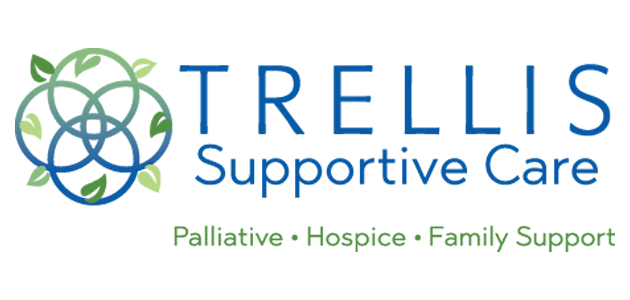Because We Care
Practical tips for family caregivers
November/December 2009
Although positive thinking can’t make all your problems go away, studies indicate it can make it easier for you to handle difficult situations. Perhaps someone you know is under stress and could benefit from this newsletter.
- Seeds of family resilience: Focus on rewards
- Managing emotional outbursts
- What is "power of attorney"?
Seeds of family resilience: Focus on rewards
 Research on stress often involves family caregivers. No matter how much you love the person you care for, taking care of an ailing relative can be stressful.
Research on stress often involves family caregivers. No matter how much you love the person you care for, taking care of an ailing relative can be stressful.
To offset the stress, consider the power of positive thinking. A recent study has shown that people who “seed their lives” with moments of positive emotions are more resilient in the face of challenges. This doesn’t mean ignoring or denying the negatives. Instead, it means taking time to notice the “micro-moments” of things that are going well.
So does this mean you should go to more movies or eat more chocolate? Not really. According to Dr. Martin Seligman, these activities might feel good at the time, but more lasting avenues to happiness come from focusing your attention on activities that feel meaningful. Often this involves taking a new perspective on your daily routines, looking at the glass as “half full.”
The good news is that a shift in attitude or attention costs nothing and generally does not add inches to your waistline!
For example, despite the hardships, family members also mention the following rewards in caregiving:
- “I am grateful to be able to give back.”
- “I now feel much closer to my mother.”
- “I’ve become more compassionate.”
- “I’ve learned to appreciate the little joys and triumphs in each day.”
- “I’m proud of the new skills I’ve learned. I had no idea I could do these things.”
- “This has given me a chance to reexamine my priorities and be sure I am living the life I want to lead.”
If you are looking for ways to feel stronger and less stressed, perhaps it’s time to think in terms of the rewards in what you are doing. By accentuating those activities that have meaning for you, you can find more enjoyment in your caregiving and become a better caregiver in the process.
Return to topManaging emotional outbursts
If the person you are caring for has Alzheimer’s disease or another type of dementia, you may find his or her sudden emotional swings more troublesome than the forgetfulness. Although you can’t completely prevent outbursts, you can reduce their frequency and their intensity.
When a mood swing or difficult behavior occurs, ask yourself “why now?”
- Look for a cause. Your loved one may be responding to someone’s comment or behavior, or to something in the room, such as too much noise or light or too many people.
- Look for a purpose. Your loved one may be acting out a basic human need. For example, sweeping and then resweeping a walkway may seem a pointless, repetitive action but actually represents a need to feel productive.
- Look for a medical problem. Pain, an infection, a hearing or vision problem, or a reaction to a medication may underlie the behavior change. Get a doctor’s input.
When responding, refrain from correcting, reasoning, or bringing them into “reality.” Acknowledge your loved one’s feelings. They are real to him or her.
- Connect and then distract. Your loved one’s behavior is likely to persist until he or she feels heard and understood by you. “I can see you’re frustrated. I would be too. Let’s have a bite to eat first, and then we can deal with this.”
- If there’s sadness or fear. Reassure. Use touch and words of comfort and support. Demonstrate that you “get it.” For example, “You’re looking lonely. May I sit a while with you?”
- If there’s anger. Stay calm. Don’t challenge or disagree. If you are in the middle of doing something together, perhaps it’s time to take a break. You can excuse yourself to go to the bathroom. When you come back, you can reevaluate if it seems wiser to resume or to do something else.
Return to top
What is "power of attorney"?
The term “power of attorney” often strikes fear in seniors. Many believe it will limit, or take away, their ability to manage their own financial affairs. Not true.
Designating a power of attorney is more like insurance: good preparation for the unknowns of the future. Consider this step a high priority if your loved one is in the early stages of dementia or has a life-limiting condition.
A power of attorney document:
- Grants an individual the authority to act on another’s behalf. This individual becomes the “agent” or “attorney-in-fact” for the person signing. There are two common forms in elder care: A “durable” power of attorney immediately gives an agent the legal right to step in. Many people choose this option with the informal understanding that the agent will step in only in an emergency. A “springing” power of attorney goes into effect only if specified events occur (for instance, if your loved one becomes unable to speak or to make decisions). Obtaining documentation that the event has occurred, however, can take valuable time in an emergency.
- Sits on the sidelines unless needed. Your loved one can continue to manage his/her affairs.
- Ensures that your loved one chooses who will have legal authority in an emergency. Otherwise, the court will appoint someone of its choosing. Because power of attorney enables access to funds, it is important that the person you care for chooses someone who is extremely trustworthy.
- Can be limited or broad. It can authorize the agent to handle a single transaction (say, sale of a house) or manage all legal and financial affairs.
- Is easy to cancel, by destroying the document or signing a new one. Notify the agent and institutions involved (bank, landlord, etc.) in writing.


